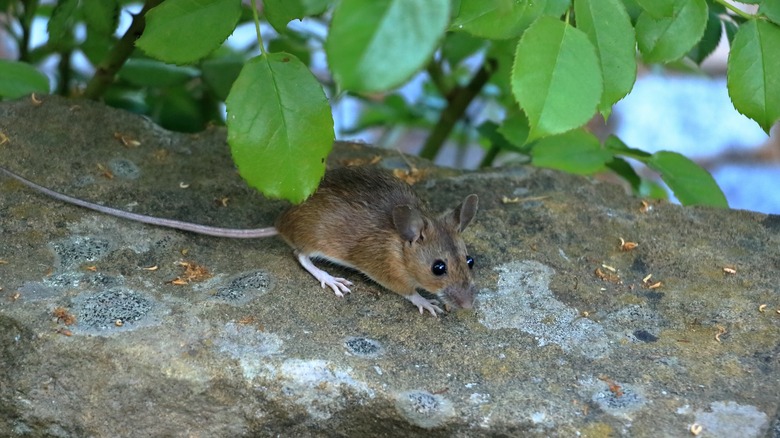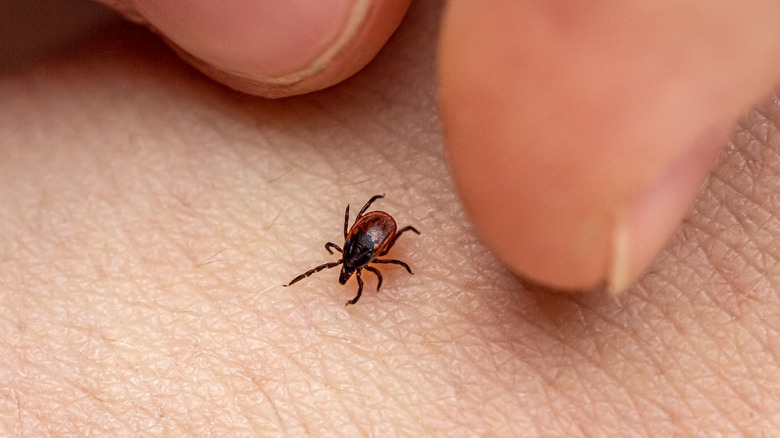The Popular Outdoor Feature That's Likely Inviting Mice & Ticks Into Your Yard
Mice in the yard can be a real nuisance. Among other things, they will eat seeds, flower bulbs, and young vegetable shoots, and chew on pretty much anything – from water pipes to electric cables. Although there are a number of tips for keeping mice out of the yard, there's one popular garden feature that often provides a safe haven: a stone wall. Whether it's made out of natural rocks or regular pavers, it's an ideal habitat for rodents. It provides protection from the elements, somewhere to nest and breed, and a hiding place from predators.
Mice aren't just a pain to deal with; they are a threat to the health of your family. They can carry nasty diseases like salmonella that causes diarrhea and vomiting, hantavirus that attacks the lungs, leptospirosis that can lead to kidney damage and liver failure, and bacteria that are resistant to antibiotics. They can also carry Lyme disease, which is transmitted to ticks that feed on them, and then to people via tick bites. Lyme disease causes a host of health issues ranging from a rash, fever, and headaches to problems with joints, heart, and nervous system. It can be treated successfully with antibiotics, but symptoms may persist for as long as six months after the initial tick bite. Dogs can also be infected with Lyme disease, and although it's not common, cats can, too.
A clever, non-lethal solution to mice in the yard, but is it the answer?
There are a number of ways to reduce the dangers of mice and ticks without tearing down those attractive garden walls you spent so much time creating. There is a commercial product you might find helpful, designed specifically to reduce Lyme disease. It's called LymeShield. Tasty pellets that have been treated with a vaccine are left where the mice can find them, and those mice, once free from Lyme disease, can't pass it onto ticks. So, the cycle is interrupted. According to the manufacturer, field trials resulted in a 75 percent reduction of Lyme disease.
LymeShield is available through a number of pest control professionals, but while it deals with the tick problem, there's still the mice to consider. They can breed at an alarming rate. A single pair of mice can produce litters of 10 to 12 pups as often as 12 times a year. If things get out of hand and you're unable to get rid of mice humanely, it may be time to call in exterminators. Among the important questions to ask pest control professionals will be whether their treatments are harmful to kids and pets. During this process, the yard may be off limits for a while.

